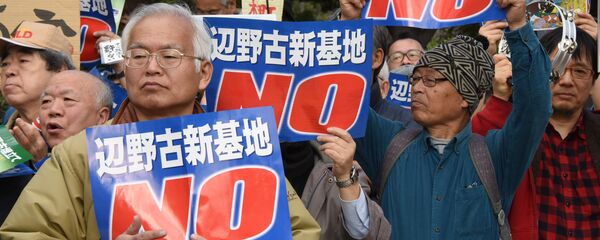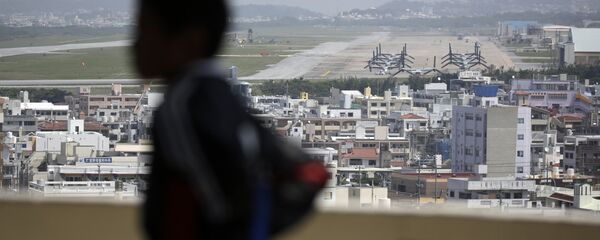As Okinawa houses most of the US installations in Japan, this transfer, first agreed to by Washington and Tokyo in 2013, is part of an initiative designed to reduce the American military’s footprint in the area.
Harris told a congressional hearing that he is hopeful that the number of US Marines in Okinawa will fall to "a point around 10,000 or 11,000 … The whole issue of moving Marines from Okinawa elsewhere is important to our alliance relationship with Japan," he said, according to the Japan Times. Harris added that 3,000 Marines will also be moved from Okinawa to Hawaii.
The relocation is tied to the controversial plan for Okinawa’s Futenma Marine Corps Air Station, which will ultimately result in the base’s closure and transfer to another part of Japan as part of a deal for the US to return some land to the island nation. This is only one base, however, and its closure is not enough to satisfy the many Okinawa residents who want the US to move all of its military installations out of their neighborhood.
Last year, Harris said Washington expected a two-year delay in moving Futenma from Ginowan, a bustling city, to a more sparsely populated region of Nago, and during the hearing Wednesday he noted Japanese officials projected a completed replacement facility in the 2022 fiscal year, though he’s not sure whether this is possible.
Takeshi Onaga, governor of Okinawa, said that building a replacement facility will require the waters near the Henoko coastal area of Nago to be partially taken up by landfill.
There has been opposition from Guam as well. With about 165,000 residents, military bases occupy about 28 percent of the self-governing island.
"The thing is, it’s not reducing the burden, it’s simply shifting it somewhere else – in this case to Guam … We’re not Okinawa, we’re not a foreign country, we’re not a state. We’ve been a US colony since 1898 and US citizens since 1950. Thus, the relationship between the civilian community with the military is very complex and very entangled and contradictory," said Vivian Dames, who hosts a public radio show in Guam called Beyond The Fence.
She told the Guardian in August 2016, "It’s not simply a matter of being for or against the buildup."




